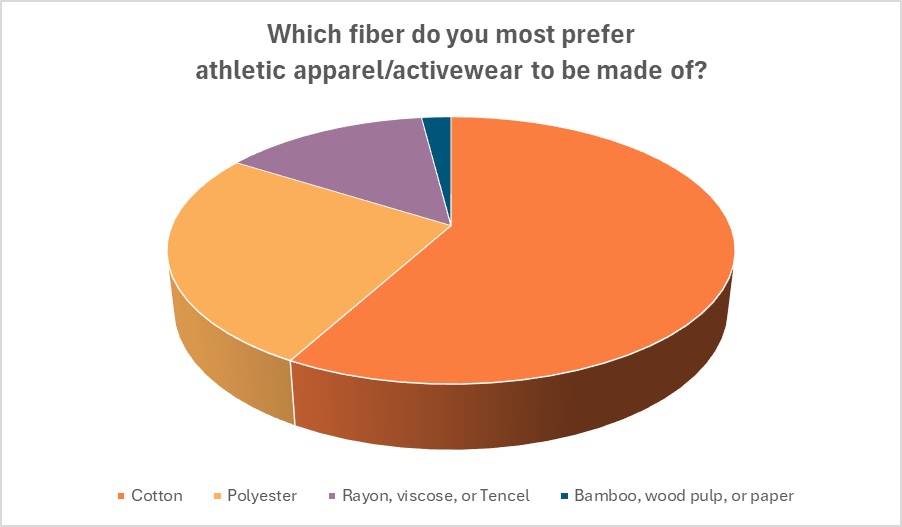We all have them, that one friend who regularly posts about plant-based eating. But as folks contend with their New Year’s resolutions – especially those in the “This is the year I’ll work out more” category – they might also consider a new element to their health regime: plant-based apparel.
It’s a phrase and mindset that Unless Collective, a plant-based streetwear brand, embraces year-round.
Plant-based is a term in today’s lexicon and it is fairly intuitive that plants return harmlessly to the earth. So, clothes and shoes made from plants can, too. Additionally, plant-based fibers provide superior comfort, are high quality and long lasting, which is something that our customers appreciate.
Paul Gaudio, Chief Design Officer, Unless Collective
“‘Sustainability’ is confusing for everyone – consumers especially,” said Unless Collective’s Paul Gaudio, chief design officer, in an interview with the Lifestyle Monitor™. “Our aim was to develop a simple solution, that can also be explained simply and straight forwardly. Plant-based is a term in today’s lexicon and it is fairly intuitive that plants return harmlessly to the earth. So, clothes and shoes made from plants can, too. Additionally, plant-based fibers provide superior comfort, are high quality and long lasting, which is something that our customers appreciate.”
From a mid-weight insulated mechanics vest that can be worn on the trail to a twill surf poncho to rugged shorts, Unless Collective heavily features cotton. Cotton biodegrades relatively quickly because it is made of cellulose, an organic compound that is the basis of plant cell walls and vegetable fibers.
Cotton also happens to be sought after by most activewear consumers. Consider that the majority of shoppers (58 percent) say they prefer athletic apparel/activewear be made of cotton, according to Cotton Incorporated’s 2024 Lifestyle Monitor™ Survey. That’s trailed by polyester (26 percent), rayon/viscose/Tencel (14 percent), and bamboo (2 percent). The cotton preference jumps to 78 percent when it comes to athletic socks.

City Threads, based in downtown Los Angeles, encourages consumers to “shop your values,” and puts an emphasis on sustainability. It also offers plenty of cotton activewear pieces, including tees, hoodies, capri leggings and joggers.
“Many of our styles are made from natural fibers – specifically cotton,” City Threads states on its website. “When we think about the end-of-life of garments, natural fibers such as cotton have the potential to biodegrade over time, allowing them to return to the Earth naturally. Not only does cotton feel soft and cozy, it boasts great breathability. Wearing natural fibers is not only good to support the ecology, it’s also healthier for your body.”
That biodegradability factor resonates with the majority of consumers. Fully 67 percent of shoppers say it is important that clothing be made from materials that can biodegrade, according to Cotton Incorporated’s 2024 Lifestyle Monitor™ Survey.
In a biodegradability study by Li, Frey, and Browning, researchers found that a 100 percent cotton shirt sees 78 percent degradation after 90 days. That compares to a 100 percent polyester shirt that degrades just 18 percent in the same time period.
Companies that tap into both the sustainability and performance aspects of activewear stand to benefit as the sports apparel market continues to grow. Statista estimated the global activewear market generated about $213 billion U.S. dollars in revenue in 2023, and is forecast to reach approximately $294 billion in 2030. The firm expects competition to intensify among major players, saying powerhouses like Nike and Adidas should expect challenges from brands like Lululemon and Under Armour.
In a forward-thinking move that may snare the attention of eco-conscious shoppers, Under Armour acquired Unless Collective last year. In announcing the acquisition, UA said Unless Collective has been pioneering “a better way for the industry to prove that plants could replace plastics in the creation of apparel and footwear.”
Unless Collective’s Gaudio says the company is just looking to find a “better way” to create activewear and footwear consumers love.
“We started with the understanding that everything that is made (and that has ever been made) ends up in the ground,” Gaudio said. “This means that we began our exploration right there – at the end of a product’s useful life. This very simply led us to creating products with material that can break down safely. We have additionally piloted industrial composting for our scraps and returned worn products. This means that rather than sitting in a landfill and polluting, we can return these materials to the earth, creating new soils; that can grow new plants. Our aim is to provide a true regenerative solution in the fashion industry.”
Besides seeking sustainable products, consumers say top factors when buying activewear are comfort (84 percent), fit (80 percent), quality (78 percent), stretch (74 percent), breathability (74 percent), softness (70 percent), and functionality (65 percent), according to Cotton Council International and Cotton Incorporated’s 2022 Global Activewear Survey.
Further, 83 percent of consumers say they are likely to look for easy care when buying activewear, according to the 2022 Global Activewear Survey. That’s followed by shrink resistance (80 percent), odor resistance (79 percent), moisture management (79 percent), thermal cooling (77 percent), chafe resistance (77 percent), abrasion resistance (76 percent), stain resistance (76 percent), and sweat-hiding features (74 percent).
While cotton is a natural, plant-based fiber, its properties can be enhanced through the application of performance technologies. For instance, TransDRY® and WICKING WINDOWS™ technologies bring moisture management to cotton that rival or beat any competitive fiber in the market. STORM COTTON™ technology is a water-repellent technology that offers protection from rain and snow. And TOUGH COTTON™ technology provides increased durability, and superior abrasion and wrinkle resistance throughout the life of a garment.
Gaudio said Unless Collective is looking forward to working with “next-gen” materials.
“All it takes is companies like ours, and hopefully the large incumbents, to work with these new materials and processes to develop them further,” Gaudio said. “If we can make products that meet consumer expectation without any compromise to style or performance, but with bio-based (plant-based) materials that can biodegrade in the right environments, then we can begin to reduce our dependence on petrochemicals. And with that we can decrease the amount of plastics being produced and discarded that find their way into our soil, our water and our bodies.”
To learn more about cotton and biodegradability, please visit the CottonToday website.
